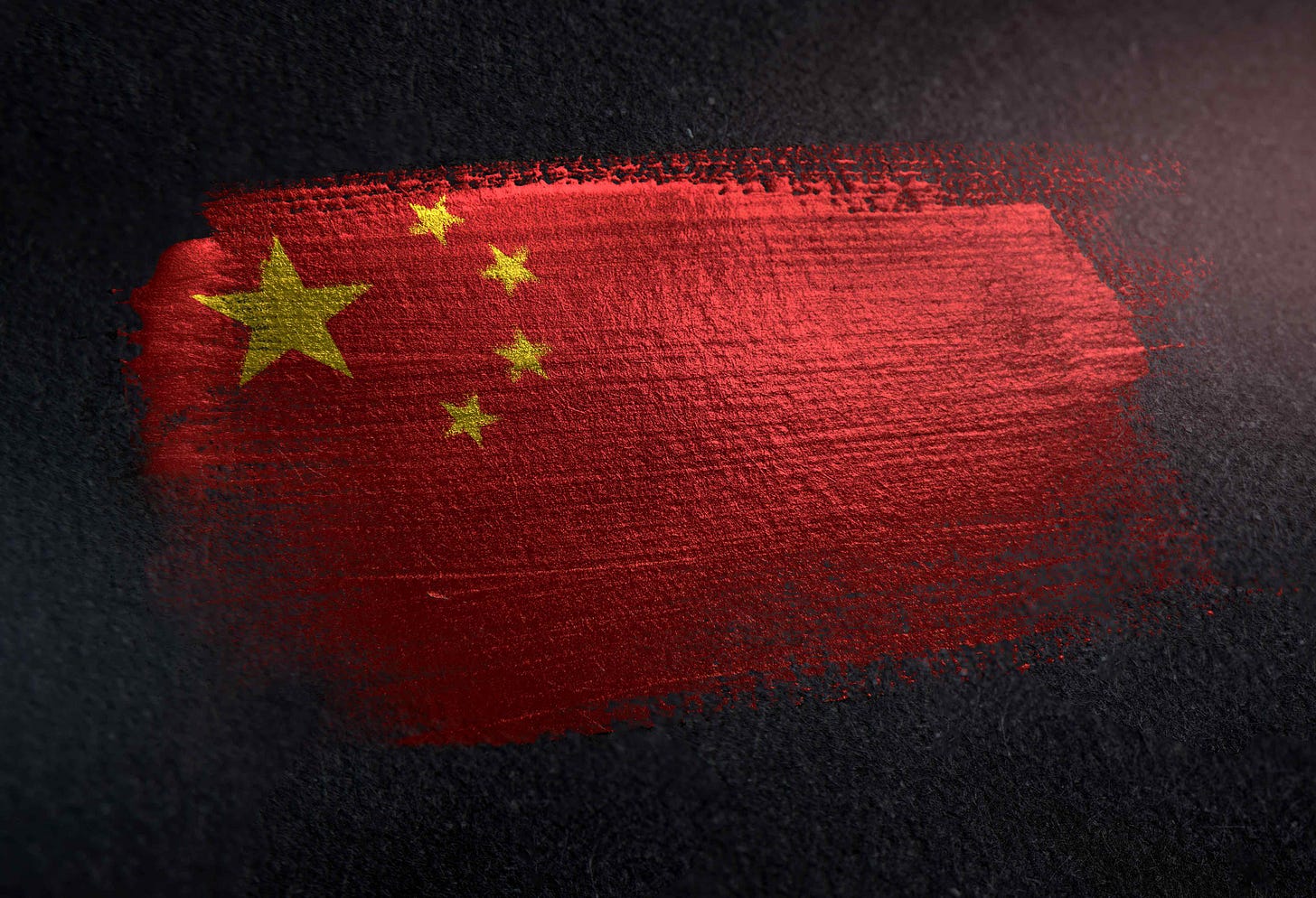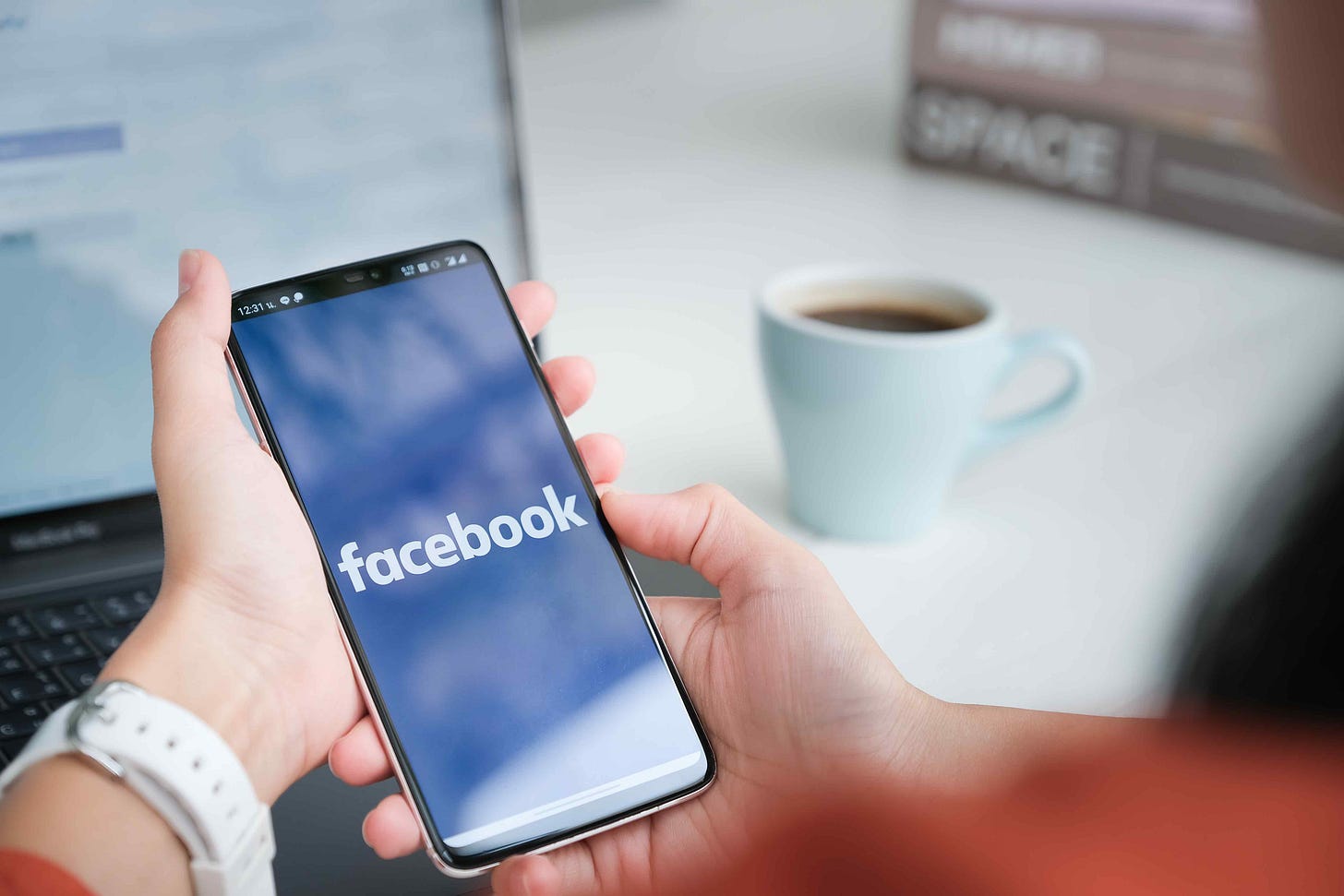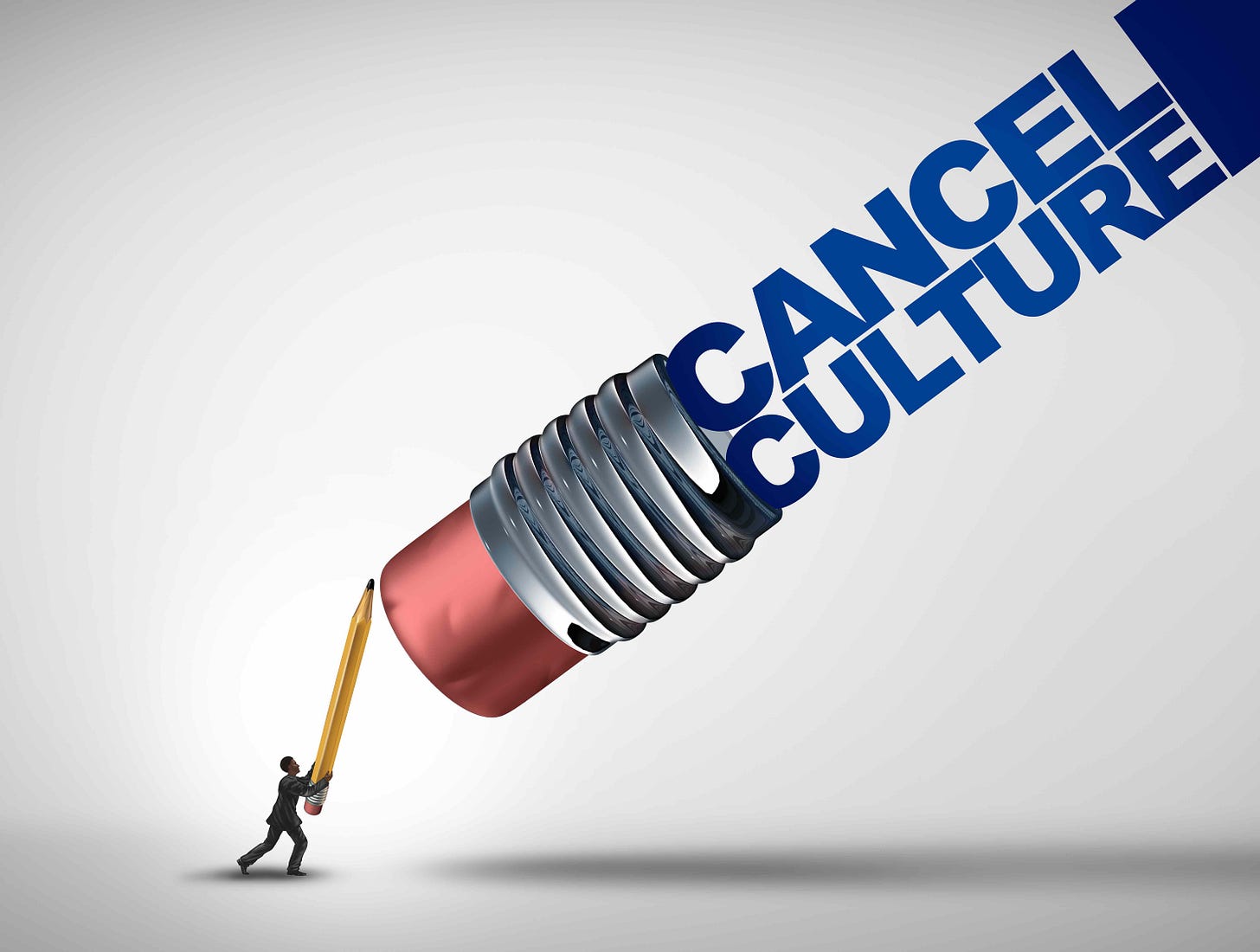E-Pluribus | July 26, 2021
China's shameful treatment of Uyghur Muslims, Facebook as a social justice network, and is the handwriting on the wall for cancel culture?
A round up of the latest and best writing and musings on the rise of illiberalism in the public discourse:
Andrew Sullivan: The Darkness Visible In China
While awareness of the oppression of the Uyghur Muslims in communist China has been growing, Andrew Sullivan makes the case that the situation merits far more attention and a stronger response than it is currently getting. The parallels to the way Jews were treated by Nazi Germany early on are perhaps closer than the world may wish to admit, but Sullivan says there’s no getting around the scope of China’s persecution of the Uyghurs or of its intended evil ends.
The “prisons” this elderly, devout Muslim was shipped off to now have a capacity of around one million people. They have been built at breakneck speed. Buzzfeed News has found “more than 260 structures built since 2017 and bearing the hallmarks of fortified detention compounds.” The more recent building suggests they are going to become permanent parts of a bid to wipe Uyghur culture from the face of the earth.
The Atlantic story helps you understand how eerily reminiscent this campaign is to the early Nazi-era treatment of Jews, all the way down to the initial disbelief that the genocidal campaign was beginning, to the slow creeping oppression, the sudden new checkpoints and security procedures, the separation of Han and Uyghurs, knocks on the door at night, the attempts of some to escape without detection, and the sudden disappearances of friends, relatives, co-workers — never to be heard of again.
We cannot know for sure what happens inside the camps, but reports from survivors include torture, starvation, force-feeding, solitary confinement, and brainwashing. And in some ways, the entire region is now an open-air prison: security cameras are everywhere, the imprisoned are pressured to incriminate others, police go house to house searching for illicit materials, mosques and neighborhoods are razed, Uyghur language is banned, phones monitored, face recognition technology is ubiquitous. […]
It’s important to note that the concentration camps for Muslims in China are not extermination camps. (At least not yet. “They are planning something dark” is not a sentence one ever wants to read.) But it is the greatest, systematic detention of a religious minority since the Second World War, championed by a newly emerged dictator-for-life, Chinese President Xi. And it is not going to stop any time soon.
The question at this point, therefore, is how we can or should react. The first priority, it seems to me, is not to look away. This is happening. It is evil.
Read the whole thing.
Arthur Milikh: The Social Justice Network
Arthur Milikh writes at City Journal of Facebook’s latest attempt to thread the needle on “hate speech” and a free exchange of ideas on its platform. Though Milikh concludes that Facebook’s “immense power must not be permitted” to curb free expression, he is less clear how to bring that about.
Until recently, most online platforms largely defined “hate speech” as speech that could lead to imminent physical harm. But Facebook now demands that its users “not post” speech critical of “concepts, institutions, ideas, practices, or beliefs associated with protected characteristics, which are likely to contribute to imminent physical harm, intimidation or discrimination against the people associated with that protected characteristic.”
“Protected characteristics,” according to Facebook, include “race, ethnicity, national origin, disability, religious affiliation, caste, sexual orientation, sex, gender identity and serious disease.” On its face, this sounds neutral and universally applicable. Yet anyone following the matter knows that it is inconceivable, for instance, that Facebook would ban critiques of “cisgenderism,” a concept whose purpose is to attack heterosexuality and the legitimacy of the generative family. It is similarly unimaginable that protected groups would be blocked from criticizing American constitutionalism as a construct of “whiteness.” Oppressor groups, after all, do not possess “protected characteristics.”
Discrimination once meant denying housing, access to public accommodations, or employment to people based on immutable characteristics. This, of course, was corrected by civil rights laws. But discrimination now means speech that protected groups find insulting. In other words, the last place where discrimination exists is in the minds of oppressor groups.
Read it all.
Zaid Jilani: The End of "Cancel Culture"?
While the current state of public dialogue may not reflect it, Zaid Jilani offers some hope that opposition to and resistance of cancel culture may be increasing. Given that some “cancellations” have been based on behavior during the targets’ teen years, it’s not surprising that in a recent poll, rejection of cancel culture is highest in the youngest cohort (ages 13 to 16) of Generation Z included in the poll.
For those of us concerned about pluralism and free speech, it is unfortunate that this youngest cohort of Americans seems to have gone on, after graduation, to increasingly enforce their new norms in a range of institutions, from leading publications to the Fortune 500. In organization after organization, you would find a cohort of young people eager to demonize their colleagues over political differences and shun or shame people for transgressions that previously would’ve been handled with a polite conversation.
This new set of norms has been dubbed “cancel culture” by some, an inexact term that often confuses as much as it clarifies. Whatever you call it, this stultifying approach to the world has had a chilling effect on political speech: A poll by the Cato Institute found that 62 percent of Americans say they have political views they’re afraid to share.
[…]
[T]his new data is a hopeful indication that cancel culture may have peaked. Overall, cancel culture is quite unpopular among all cohorts, with each generation viewing it more negatively than positively. Millennials appeared to be most supportive of cancel culture: 19 percent said they had a positive view of it, while 22 percent were neutral, 36 percent were opposed to it, and 22 percent said they had no opinion.
Perhaps surprisingly, given its progressive leanings and similar social and political beliefs to the millennial generation, Gen Z was the cohort most opposed to cancel culture: 55 percent said they had a negative view of cancel culture, 8 percent were supportive of it, 18 percent were neutral, and 19 percent had no opinion. Moreover, it’s the youngest cohort within Gen Z—currently ages 13 to 16—who are most opposed to cancel culture, with 59 percent having a negative view of it. That number falls to 48 percent for the oldest cohort within Gen Z—ages 21 through 24.
Read it all here.
Around Twitter
Censorship apparently has a fair amount of support in the United Kingdom:
A short conversation on our society’s apparent communal inclination to silence ideological opponents:
David French defends his Sunday essay on structural racism:
Finally, Vivek Ramaswamy responds to the news in our third item above, “The End of ‘Cancel Culture’?”:










